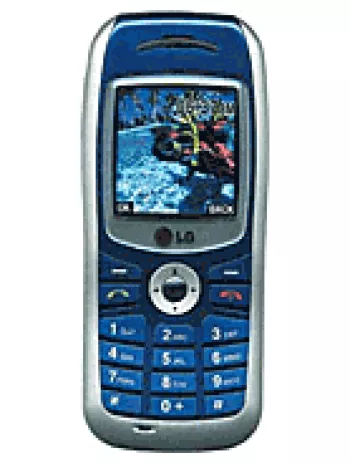
Overview and Introduction
The LG U8150 was a mobile phone that marked a significant step in the technology landscape during the early 2000s. Announced in the third quarter of 2003, this device offered a range of features that catered to the needs of users at the time. As part of LG's lineup, the U8150 was part of the burgeoning era of feature phones, where devices were evolving from basic utilities to more sophisticated communication tools. Despite being discontinued, it remains a memorable model for many technology enthusiasts.
Design and Build
The design of the LG U8150 was characteristic of early mobile phones, with a compact form factor that measured 99 x 50 x 24 mm and weighed 136 grams. This substantial weight gave the phone a robust feel in hand. It utilized a Mini-SIM and featured a body that was both practical and stylish for its time. The phone's physical dimensions made it easy to carry around yet provided enough space to house essential components.
Display Features
The LG U8150 was equipped with a TFT display capable of displaying 256K colors. Although the screen size was not particularly large by modern standards, its resolution of 176 x 220 pixels was standard for the time, allowing users to enjoy vivid visuals. The display supported up to 7 lines of text, which was adequate for reading messages and browsing content available through the device's WAP browser.
Camera Capabilities
One of the standout features of the LG U8150 was its VGA camera with a 180-degree rotating lens, which was a novel design choice at the time. This rotation capability allowed users to take both primary camera shots and selfies with the same sensor. This camera could also record video, providing a basic multimedia functionality that was becoming increasingly popular among users.
Network and Connectivity
The device supported GSM technology, with 2G bands operating at 900/1800 Hz and 3G capabilities on the UMTS 2100 band. The phone's connectivity allowed for internet browsing at speeds of up to 384 kbps. While it didn't support modern connectivity options such as Bluetooth or WLAN, it did include an infrared port for wireless data transfer and a proprietary USB connection for wired data transfer.
Memory and Storage
Internally, the LG U8150 came with 64MB of storage. This capacity was sizable for a feature phone, considering it was designed to store contacts, messages, and basic multimedia content. The phonebook could hold up to 1000 entries and 7 contact groups, which was quite impressive. However, there was no card slot available for expandable storage, limiting the multimedia content users could carry with them.
Multimedia and Entertainment
Even though multimedia features were basic compared to today's standards, the LG U8150 did offer a few options for entertainment. Users could benefit from downloadable polyphonic ringtones, and the phone supported vibration alerts. Java support meant that the device could run basic games, adding some entertainment value for the user.
Battery Performance
The phone was powered by a removable Li-Po 1200 mAh battery. This provided a standby time of up to 200 hours and talk time of around 2 hours, which was average among devices from that era. The ability to remove the battery was also a significant advantage, allowing users to replace it easily and thus extend the phone's longevity.
Additional Features
The LG U8150 also featured basic utilities such as an alarm clock and support for various messaging formats including SMS, EMS, and MMS. It also included a WAP 2.0/xHTML browser, which allowed for rudimentary internet access. However, features like GPS and radio were absent, reflecting the technological constraints of the time.
Position in the Market
During its release, the LG U8150 competed with several other models from various manufacturers, each striving to offer the best possible mobile experience within the limitations of the technology of the time. Its feature set made it a competitive option in markets where telecommunication infrastructure was robust enough to take advantage of 3G technology.
Legacy and Historical Significance
Although the LG U8150 is no longer in production, it stands as a testament to the technological innovations of the early 2000s. It captures an era where mobile phones were beginning to incorporate more advanced features, setting the stage for the smartphones we use today. Remembering devices like the LG U8150 helps us appreciate the strides made in mobile technology and design over the years.
Key Features of LG U8150
- Network: Supports GSM and UMTS technology with 3G capabilities.
- Compact Design: Dimensions of 99 x 50 x 24 mm and a weight of 136 g.
- Display: TFT screen with 256K colors and a resolution of 176 x 220 pixels.
- Camera: VGA camera with a 180-degree rotating lens and video capability.
- Memory: Internal storage of 64MB with phonebook capacity for 1000 entries.
- Infrared Connectivity: Includes an infrared port for wireless data exchange.
- Messaging: Supports SMS, EMS, MMS, and Email for versatile communication.
- Battery: Removable Li-Po 1200 mAh battery with up to 200 hours standby.
Disadvantages of LG U8150
- No expandable memory card slot
- Limited internal memory of 64MB
- No front (selfie) camera
- No Wi-Fi support
- No Bluetooth connectivity
- No GPS or location services
- No FM radio support
- Proprietary USB connection instead of standard micro-USB
- No 3.5mm headphone jack
- Short battery life with up to 2 hours of talk time

View Also
More Phones
All Rights Reserved +14266 Phones © Mobilawy 2025

























